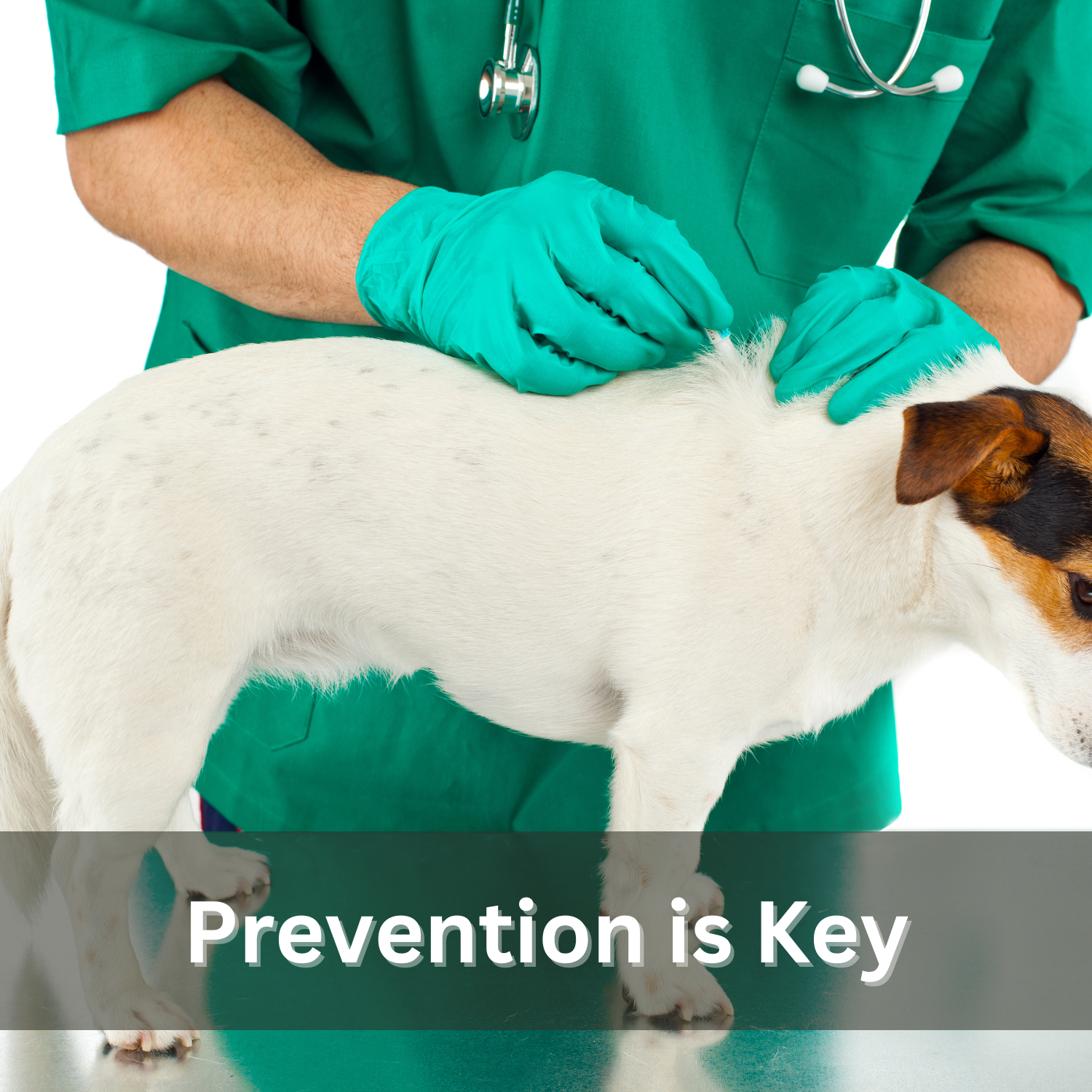Protecting Your Pet: A Comprehensive Guide to Flea, Tick, Roundworm, and Heartworm Prevention
As pet owners, ensuring the health and well-being of our beloved companions is a top priority. One of the most significant threats to our pets’ health comes from parasites like fleas, ticks, roundworms, and heartworms. In this comprehensive guide, we’ll delve into the importance of prevention and provide valuable insights on protecting your furry friends from these harmful pests.
Understanding the Threat:
Fleas, ticks, roundworms, and heartworms are more than just annoyances—they can pose serious health risks to our pets. Fleas and ticks can transmit diseases and cause skin irritations, while roundworms and heartworms can lead to severe health issues, including organ damage and even death if left untreated. Prevention is essential to safeguarding your pet’s health and well-being.
Fleas and ticks are common parasites that can infest dogs and cats, causing discomfort and transmitting diseases. To prevent infestations, regular use of flea and tick prevention products is crucial. These products come in various forms, including topical treatments, oral medications, and collars. It’s essential to choose a product that is safe and effective for your pet’s specific needs.
Roundworms are intestinal parasites that can infect both dogs and cats. They are typically transmitted through ingestion of contaminated soil or feces. Preventing roundworm infestations involves regular deworming treatments and practicing good hygiene, such as picking up your pet’s waste promptly and keeping their living environment clean.
Heartworm disease is a serious and potentially fatal condition caused by parasitic worms that live in the heart, lungs, and blood vessels of infected animals. Mosquitoes transmit heartworm larvae from one animal to another, making prevention essential, especially in areas where mosquitoes are prevalent. Monthly heartworm preventatives are available in various forms, including chewable tablets, topical treatments, and injections.
Comprehensive Protection:
While individual prevention methods target specific parasites, many products offer comprehensive protection against multiple types of parasites. For example, some medications prevent not only fleas and ticks but also roundworms and heartworms. These all-in-one products simplify prevention efforts and provide peace of mind knowing that your pet is protected from a range of parasites.
Choosing the Right Products:
With a plethora of flea, tick, roundworm, and heartworm prevention products available on the market, selecting the right one for your pet can be overwhelming. It’s essential to consult with your veterinarian to determine the most suitable prevention plan based on your pet’s age, health status, lifestyle, and environmental factors.
Tips for Effective Prevention:
In addition to using preventive medications, there are several other steps you can take to minimize the risk of parasite infestations:
- Keep your pet’s living environment clean and tidy, regularly vacuuming carpets, washing bedding, and removing any potential breeding grounds for fleas and ticks.
- Practice good hygiene by grooming your pet regularly and checking for signs of parasites, such as flea dirt, ticks, or unusual behavior.
- Minimize your pet’s exposure to areas where parasites are prevalent, such as wooded areas, tall grass, and areas frequented by other animals.
- Maintain a regular veterinary schedule for preventive care, including vaccinations, deworming, and heartworm testing.
Protecting your pet from fleas, ticks, roundworms, and heartworms is essential for their health and well-being. By implementing a comprehensive prevention plan that includes regular use of preventive medications, practicing good hygiene, and minimizing exposure to parasites, you can help ensure a happy and healthy life for your furry friend. Consult with your veterinarian to develop a tailored prevention strategy that meets your pet’s specific needs and lifestyle. Together, we can keep our pets safe from the dangers of parasites and enjoy many years of companionship and joy.


